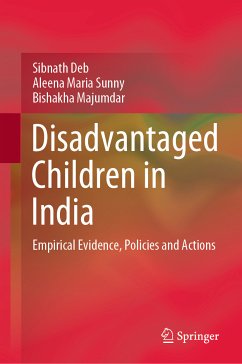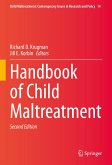Sibnath Deb, Ph.D. & D.Sc., is a Professor at the Department of Applied Psychology, Pondicherry University (A Central University), India. Prior to joining Pondicherry University, he taught at the University of Calcutta. In 1994, Prof. Deb completed an intensive course on 'HIV/AIDS and Qualitative Research' at the University of Western Australia. From April to August 2009, he visited the School of Public Health and Social Work, Queensland University of Technology (QUT), Brisbane, Australia as Visiting Faculty. He is also an Adjunct Professor at the School of Justice, Faculty of Law at QUT. From 2004 to 2008, he was a Council Member of the International Society for Prevention of Child Abuse and Neglect (ISPCAN). Currently Prof. Deb is also acting as an Adjunct Professor at School of Justice, Faculty of Law, Queensland University of Technology, Brisbane, Australia (16.09.2019 to 15.09.2022). He has 29 years of teaching, research, and administrative experience and has published a large number of research articles in leading national and international journals as well as in edited books. Prof. Deb has written six books and edited five. Some of his latest books include (i) Child Safety, Welfare and Well-being (Springer, 2016), (ii) Positive Schooling and Child Development: International Perspectives (Springer, 2018), (iii) Social Psychology in Everyday Life (Sage, 2019) and (IV) Childhood to Adolescence: Issues and Concerns (Pearson, 2019). His research interests include child safety, students' mental health, adolescent reproductive health, and applied social psychology. He has got "Visitor's Award 2019" for his contribution in the field of child protection and students mental health (sibnath23@gmail.com).
Aleena Maria Sunny is a full-time Ph.D. scholar under the supervision of Prof. Sibnath Deb at the Department of Applied Psychology, Pondicherry University. She holds an M.A. in Applied Clinical Psychology from Tata Institute of SocialSciences and a B.A. (hons) in Psychology from Christ University, Bangalore. Recently she co-authored a book with Prof. Sibnath Deb, published by PEARSON. Her research interests include clinical psychology, neurocognitive psychology, and child development.
Bishakha Majumdar, a fellow of IIM Indore, is currently working as an Assistant Professor in Indian Institute of Management (IIM), Visakhapatnam. She has six years of teaching and research experience in applied psychology and organizational behavior. She has published her work nationally and internationally in the areas of human resource management, psychology, and public health. She is also an Associate Editor of the journal South Asian Survey.









